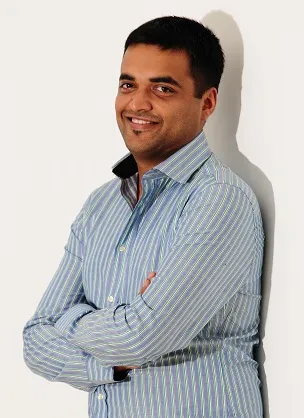8 months on, how is Zomato doing internationally?

Zomato, an online restaurant and nightlife guide is one of the fastest consumer web startups growing from India. Zomato has raised INR 86 crores till now in 4 rounds from Info Edge and the company ramped up its international plans in July last year (Zomato started as foodiebay back in 2008). Starting with Dubai, Zomato started spreading, in 7 countries right now- 97,500 restaurants listed across India, UK, UAE, Philippines, South Africa, Qatar and Sri Lanka. We got in touch with co-founder Deepinder Goyal, edited excerpts:
YS: How have you been selecting countries to expand into, what is the thought process?
DG: We actually do a very detailed on-the-ground study to evaluate a market. This means picking a list of cities that we think are feasible on a macro level (demographics, regulatory, etc.) and then sending people to go through our entire operations process – from collecting information to talking about possible partnerships with local merchants to engaging with users by showing them the product. It’s like doing a miniaturized city launch. This is the best way for us to figure out the customization a local market will need, and in the process, it gives us a very good idea of the market as a priority.
YS: What’s immediately on the charts?
DG: In the very near term, we are focusing on increasing our foot-print within the 7 countries where we are already present. This means, increasing the number of cities we cover in Philippines, South Africa and UK. In the long term we have a healthy road map for countries where we wish to establish a presence for Zomato. This includes countries with markets closer to our existing locations as well as some far flung markets in North and South America.
YS: How many listings in each of these countries do you have as of now?
DG: We currently have presence across 21 cities in 7 countries listing, here’s a breakup:
India: 53740 (Across 13 cities - Delhi, Mumbai, Bangalore, Pune, Hyderabad, Chennai, Kolkata, Lucknow, Jaipur, Ahmedabad, Chandigarh, Indore and Ludhiana)
PH: 11060 (Metro Manila)
Qatar: 1430 (Doha)
SA: 2350 (Johannesburg)
Sri Lanka: 770 (Colombo)
UAE: 9270 (Dubai, Abu Dhabi, Sharjah)
UK: 18880 (London)
YS: Can you give us some numbers in terms of traction?
DG: We have over 12 million users per month across the countries of our presence and have had over 2 million mobile app downloads across platforms. We are a new entrant in a majority of these markets and hence we see growth numbers as high as 20% week on week. As of now a majority of our users are based in India and the UAE.
YS: Can you throw some light on the revenue side?
DG: Our revenue model is based on hyper-local advertising. Most of our 12 million monthly users visit Zomato just before lunch or dinner time, to decide which is the best place to eat out or order in from around them. Since Zomato is only built for food/restaurant discovery, this forms a highly targeted platform for players in the food and beverage sector to promote their product.
Our Indian operations reached EBITDA break-even in December 2012 and we have already broken even with our operational costs in Dubai in the 6 months since our launch there. Although it is too early to say, we are hoping that about 5-6% of our total revenue to comes from our foreign operations this year.
YS: How does Zomato handle local operations in foreign countries?
DG: Typically our foreign offices are branch offices with a country manager who is supported across the different content, sales and marketing functions by a locally hired team. We do have an international team that helps in the set up and also in training a local team until it is self-sufficient.
YS: How many people do you have in other countries? What are your hiring plans?
DG: We have an offices in 15 cities across India, London, Dubai, Manila and Johannesburg. We have a team of 11 in London, 7 in Manila, 5 in Johannesburg, 12 in Dubai, 2 in Doha and 223 in India and are looking to hire an additional 200 people across locations this year.







